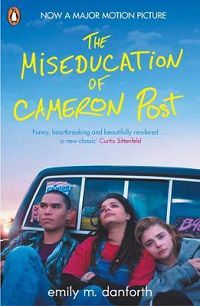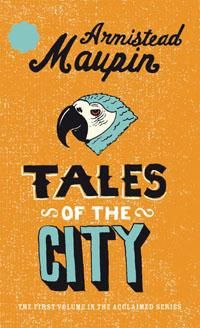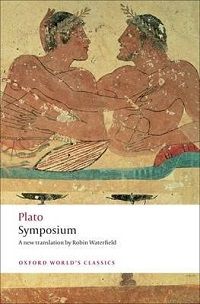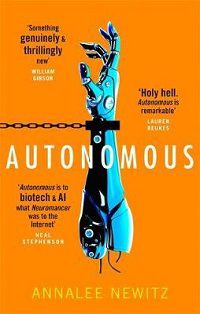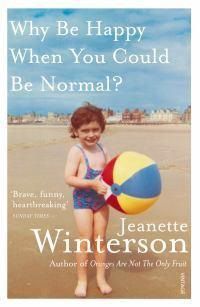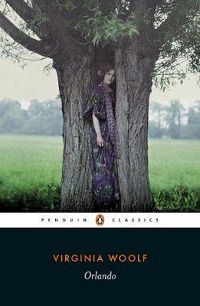Compiled by celebrated author and journalist Benjamin Law, Growing Up Queer in Australia assembles voices from across the spectrum of LGBTIQA+ identity. Spanning diverse places, eras, genders, ethnicities and experiences, these are the stories of growing up queer in Australia.
We’ve asked some of these wonderful contributors, and some of our wonderful booksellers, to share the LGBTIQ+/queer reads they wished they’d had growing up.
Readings is donating $2 from every sale of Growing Up Queer in Australia in August to LGBTIQA+ youth advocacy group Minus 18, with the book’s publisher Black Inc. to match the donation.
Alice Boyle studied creative writing, French and Spanish at the University of Melbourne. She’s a writer, ESOL teacher and sometimes-photographer. She lives in Melbourne with her Belgian partner and is currently writing a queer young adult novel.
The Miseducation of Cameron Post by Emily M. Danforth would have been a dream to read growing up. Danforth captures the intensity of burgeoning queer identity against the conservative backdrop of rural ’90s Montana. The recent film adaptation’s great too, but nothing can top the book. It’s magnificent.
For a change of pace, I love Laura Dean Keeps Breaking Up with Me by Mariko Tamaki and Rosemary Valero-O'Connell. It’s a heart-wrenching graphic novel about navigating first love and learning to value yourself when others don’t treat you well. It doesn’t centre on the coming out narrative, which makes a refreshing change in queer YA.
For queer nonfiction, I’d gift my younger self a copy of Ruby Tandoh’s Eat Up. It’s a rich, evocative, and non-prescriptive exploration of food and eating told from an intersectional perspective. Tandoh makes her reader fall back in love with the messy, tactile, and sometimes mundane beauty of food. It’s the perfect antidote to all that ‘clean eating’ noise.
I’d have also devoured Holly Throsby’s Goodwood for a serve of queer Australian Gothic, Benjamin Law’s Gaysia for anthropological hilarity, and Juno Dawson’s Clean and Meat Market for gritty, gripping YA.
Steve Dow is an arts writer for The Saturday Paper and Guardian Australia, and author of the essay ‘Bent Man Running’ in
I’d recommend anything by Armistead Maupin, whose Tales of the City series built a fictional family from his San Francisco days, and David Sedaris’ essays – my choice pick from Sedaris is ‘Old Faithful’ from the collection When You Are Engulfed in Flames, about his relationship with his partner Hugh. Maupin and Sedaris envelop you in their whimsical worlds but also, Sedaris sent me a bawdy British seaside cartoon after I interviewed him once. Who else sends postcards anymore?
Atul Joshi was born in Myanmar, of Indian parents. He migrated to Australia as a child in 1971. A former classical musician, he lives in the New South Wales Highlands and works in arts management. His short fiction has been published in The Big Issue, Seizure, and Ricepaper Magazine Canada.
In terms of books I’d recommend to my younger self or to young queers, I have to go with Ocean Vuong’s On Earth We’re Briefly Gorgeous, because it would have shown me it’s OK to be Asian and queer and to love the beauty of poetry and writing. I’d also recommend a classic, E.M. Forster’s Maurice, to show me that despite life’s vicissitudes as a queer man, happy endings ARE possible!
Beau Kondos is the author of the YA fantasy novel
The book that helped me: Plato’s Symposium. This text includes a parable of the origins of humanity and different types of love, which first normalised homosexuality for me. Reading this tucked away at my university library was when the penny really dropped. I was normal and it wasn’t others I need to convince, it was me.
The book is recommended to my younger self: Patrick Ness’s Release. Here Ness depicts teen homosexuality in a contemporary context, with supernatural undertones, and an awakening on the journey to self love that would’ve taught me acceptance a lot earlier on.
Jean Velasco is an Australian writer, of mostly speculative fiction. She is currently based in Madrid, where she works as a teacher and translator.
Unfortunately, growing up I had approximately zero (0!) queer references, literary or otherwise. In book terms, I was raised on the classics, and a handful of old-school science fiction. I still read a lot of sci-fi and speculative fiction, but these days I actively seek more diverse writers and themes. I’m no expert, but here are my top picks:
Autonomous by Annalee Newitz ) is set in the future and is about AI, Biotech, and Big Pharma. It has queer human protagonists and also explores the idea of gender identity in robots.
The Left Hand of Darkness by Ursula K. Le Guin is a sci-fi classic about a planet whose inhabitants have no gender (most of the time…).
How to be Both by Ali Smith is about a contemporary British girl starting to explore her sexuality and a gender-diverse Renaissance fresco painter.
Stray City by Chelsey Johnson is about the queer (particularly lesbian) community in Portland, Oregon. It deals with biphobia, gay parenting, and has great music references.
The Glittership Podcast. Very surreal, very queer short stories.
Yamiko Marama is a writer, therapist and food truck owner. She lives in Melbourne with her favourite person, Gina. Yamiko is a 2018–2019 inaugural Next Chatper Wheeler Centre recipient and is currently writing a memoir on otherness, based on her experiences as a queer woman of colour in Australia.
- Why Be Happy When You Could Be Normal by Jeanette Winterson. I really identified with Winterson’s exploration of what she chose to share, and the power of what she chose to leave out from her previous memoir. Her story is about so much – hurt, intimacy, attachment, identity. I wish I could write the way she does – you physically ache for her. Almost everything written can be understood as a subtext to queerness (although the book is not entirely about that either). ‘I learned secrecy early. To hide my heart. To conceal my thoughts.’
- Sister Outsider by Audre Lorde: a powerhouse in black, lesbian, feminist storytelling. Some of her statements feel like they have been ripped from my mind. I can’t give her justice without using her own language – ‘There’s always that one little piece inside you that wants to be spoken out, and if you keep ignoring it, it gets madder and madder and hotter and hotter, and if you don’t speak it out one day it will just up and punch you in the mouth from the inside’.
- Holding the Man by Timothy Conigrave: while the story takes an honest look at AIDS, homophobia, and queer life in Melbourne in the 70s, at its centre it is about the love between Tim and John. Growing up, I often drove past Xavier College – where the two boys meet. There’s something really special about feeling connected to the world or environment the characters lived in.
- Orlando by Virigina Wolf. The fluid and changing nature of gender and sexuality in this novel was striking for me when I read it in my early twenties. I felt powerful reading it.
- Call Me by Your Name by Andre Aciman: I read this novel after having seen the movie, which I found bewitching, and reminded me of having travelled through Italy with my girlfriend. The novel had a superb level of intimacy – I found myself getting caught up in the big romance and the small, everyday details of this story.
- The Price of Salt by Patricia Highsmith: it was special to read this book about two women in love, while on a lazy and indulgent weekend away with my girlfriend, also happily in love.
Chris Gordon
I have always been very taken with the story of Vita Sackville West. I loved that she was a poet, commentator and a gardener. I loved that her best friend Virginia Woolf immortalised her in the wonderful biography Orlando. I love that the book’s Orlando is scornful of genteel society and rubbed member’s noses in all forms of sexual experimentation and crossdressing. Orlando strutted around, talking loudly and frequently to all those supercilious decision makers. I imagine the exchanges that Virginia and Vita must have had to produce such a novel. They must have felt like survivors from a shipwreck.
The literary landscape is different now, thankfully, than when I was growing up and searching the shelves. Woolf’s work was groundbreaking at the time and remains extraordinarily relevant today. It was my passport to many possibilities.
Marie Matteson
As I was growing up queer in Australia, before the far reach of the internet, I developed book gaydar. I could look at the spines of books and suspect there was something queer in there. Using this scientific method I discovered one of my favourite queer science fiction titles: Slow River by Nicola Griffith, about a young woman on the run, an early nod at smart phones and the mechanics of water treatment. Most importantly it had a queer protagonist who just was. Her queerness was a given. There is nothing so liberating as reading a world in which your queerness is reflected back to you as an everyday part of oneself.
By the time I thought I was fully grown up and queer I discovered Ali Smith, and her book Girl Meets Boy, a joyous tale of queerness and joy, and weirdly now I think of it, water.
It’s funny though, at forty-one I can still get excited when I see a YA title that feeds the young version of yourself who didn’t get enough smart rom-coms. Luckily, Amelia Westlake arrived and it was still everything I wanted from the smart teen comedy that had formed so much of my reading growing up queer in Australia.


